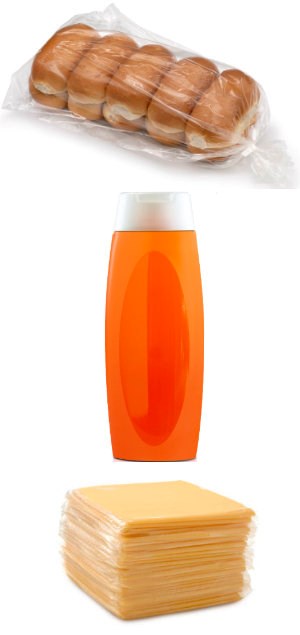PFAS-Free Processing Aid for Blown Film Extrusion
Ampacet’s new processing aid said to perform as well as fluoro-based PPAs in blown film.

Ampacet has introduced a PFAS-free polymer processing aid (PPA) masterbatch that is said to perform as well as fluoro-based PPAs in blown film extrusion for multiple end-use applications. Due to potential health hazards perfluoroalkyl and polyfluoroalkyl substances (PFAS) have been regulated in food packaging by several states, with.additional governmental restrictions expected this year and beyond.
PFAS have been used in polymer process aids for years in dozens of product categories. According to Ampacet, its line of PFAS-Free PPA, a synergistic blend of chemistries designed to be roughly equivalent to the performance of a commonly used fluoro-based PPAs.
Depending on the user’s process, 1% to 3% of Ampacet PFAS-Free PPA masterbatch is generally required. The new PPA is FDA food contact compliant, with comparable economics to PFAS. Other benefits cited include:
â–ª Eliminates melt fracture
â–ª Reduces die build up
â–ª Productivity gains (increased throughput)
â–ª Reduced plastic waste supports sustainability goals
â–ª No interference with surface treatment (printing and laminating)
â–ª No effect on sealing
Related Content
-
The Fantasy and Reality of Raw Material Shelf Life: Part 2
For the vast majority of thermoplastics, the stability of the materials can be stated in years, not months. But there are exceptions where shelf life can be a serious issue.
-
Prices Up for PE, ABS, PC, Nylons 6 and 66; Down for PP, PET and Flat for PS and PVC
Second quarter started with price hikes in PE and the four volume engineering resins, but relatively stable pricing was largely expected by the quarter’s end.
-
Polymer Science for Those Who Work With Plastics: Why Entanglements — Not Just Molecular Weight — Drive Plastic Performance
Ever try running your fingers through tangled hair? Yeah … that’s not fun, but that’s what happens at the molecular level when polymer chains reach the right length. They wrap around each other, intertwine and … get stuck — and those tangles are the real reason plastics perform the way they do.







